Steve Marshall Opposes Expected Medical Marijuana Bill

The upcoming medical marijuana bill is expected to be a highlight in this coming legislative session.
Medical marijuana commission to hold first meeting

Alabama’s commission considering laws about medical marijuana is holding its first meeting. The Medical Cannabis Study Commission is tasked with recommending legislation to be considered in the 2020 legislative session. The panel will hold its first meeting at the Alabama Statehouse on Tuesday morning. The commission was created by lawmakers as a compromise after a bill to allow medical marijuana stalled in the Alabama Legislature. Sen. Tim Melson’s original bill would have allowed patients with certain medical conditions to purchase medical marijuana with a doctor’s approval. The Alabama Senate approved the measure, but the proposal hit opposition in the House of Representatives. The National Conference of State Legislatures says more than 30 states have approved some form of a medical marijuana program. Republished with permission of the Associated Press.
Alabama regulators warn investors about jumping on the cannabis bandwagon

The Alabama Securities Commission is cautioning investors about schemes and risks associated with marijuana-related investments. Investments in marijuana business ventures are becoming more prevalent and are receiving increased media coverage. Scammers frequently use the latest “hot product” on the market to drive up interest and lure investors to get in on the “ground floor” of the next huge investment opportunity to convince investors to hand over money for risky or outright fraudulent marijuana ventures. Common marijuana investment schemes: Reverse Merger Scam: The marijuana company’s promoters buy the stock of a publicly traded company that has no assets or current operations. The promoters use the public listing to create a false sense of security surrounding the marijuana business, and unscrupulous brokers collect commissions selling the stock to investors. Pump & Dump Schemes: A “Pump & Dump” scheme occurs when scammers use misinformation or tout an investment to pump up the price of a security and then dump their shares when the price gets high enough to turn a profit, leaving innocent investors holding with potentially substantial losses. Crowdfunding Schemes: Marijuana-related companies may try to use new crowdfunding rules to raise capital from a broad base of investors using the internet. Even without any fraudulent intent from promoters, these investments tend to be in risky, undercapitalized start-ups. Jurisdiction-Specific Illegal Marijuana Schemes: Scammers may make promises about insider information concerning a new law or regulation that will legalize marijuana in a jurisdiction where it is currently prohibited. Investors may be encouraged to “get in now,” buying low and making huge profits when a new law or regulation is enacted. In reality, there may not be any new laws or regulations pending, allowing the scammers to take the money and run. Given the rapidly changing laws concerning marijuana, even an investment in a legitimate marijuana business may have extra risk.
Carly’s Law study at UAB finds medical marijuana oil helps epilepsy patients
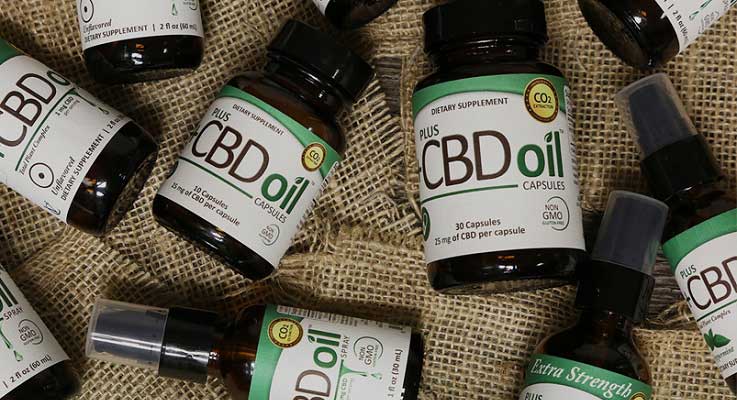
It’s official: cannabidiol, or CBD oil, oil derived from marijuana plants, helps reduce the number of seizures in patients with treatment-resistant epilepsy. That’s according to findings by the University of Alabama at Birmingham (UAB) released earlier this month. CBD oil, which contains little of the “high-inducing” chemical THC, came into the Alabama lexicon with the passage of “Carly’s Law,” in 2014 after piece of legislation provided the UAB Epilepsy Center and Children’s of Alabama the ability to conduct clinical trials of cannabidiol, a component of cannabis. Starting in 2015, UAB launched the landmark study, which focused on 132 patients, 72 children and 60 adults, with intractable epilepsy who did not respond to traditional therapies. “The study analyzed data from the 132 patients at baseline and at visits at 12, 24 and 48 weeks. Seizure frequency decreased from a mean of 144 seizures every two weeks at baseline to 52 seizures over two weeks at 12 weeks into the study. The reduction remained stable through the 48-week study period,” wrote Bob Shepard at UAB. “This is a highly significant reduction in the number of seizures that the majority of patients experienced, nearly a two-thirds reduction across the entire study population,” said Martina Bebin, M.D., professor in the Department of Neurology in the School of Medicine and principal investigator of the pediatric arm of the study. “Some patients experienced an even greater reduction of seizure frequency.” The investigators also noted parallel decreases in both seizure severity and seizure frequency, indicating that, for many patients, use of CBD oil led to both fewer and less intense seizures. UAB research makes national impact Thanks in part to the research coming out of UAB, on June 25, the U.S. Food and Drug Administration (FDA) approved Epidiolex® for seizures associated with two rare and severe forms of epilepsy, Lennox-Gastaut syndrome and Dravet syndrome, marking the first FDA approval of a purified drug derived from cannabis. “This approval serves as a reminder that advancing sound development programs that properly evaluate active ingredients contained in marijuana can lead to important medical therapies. And, the FDA is committed to this kind of careful scientific research and drug development,” said FDA Commissioner Scott Gottlieb, M.D. “Controlled clinical trials testing the safety and efficacy of a drug, along with careful review through the FDA’s drug approval process, is the most appropriate way to bring marijuana-derived treatments to patients. Because of the adequate and well-controlled clinical studies that supported this approval, prescribers can have confidence in the drug’s uniform strength and consistent delivery that support appropriate dosing needed for treating patients with these complex and serious epilepsy syndromes.”
Birmingham pro-stoner group organizing largest public smoke-out ever
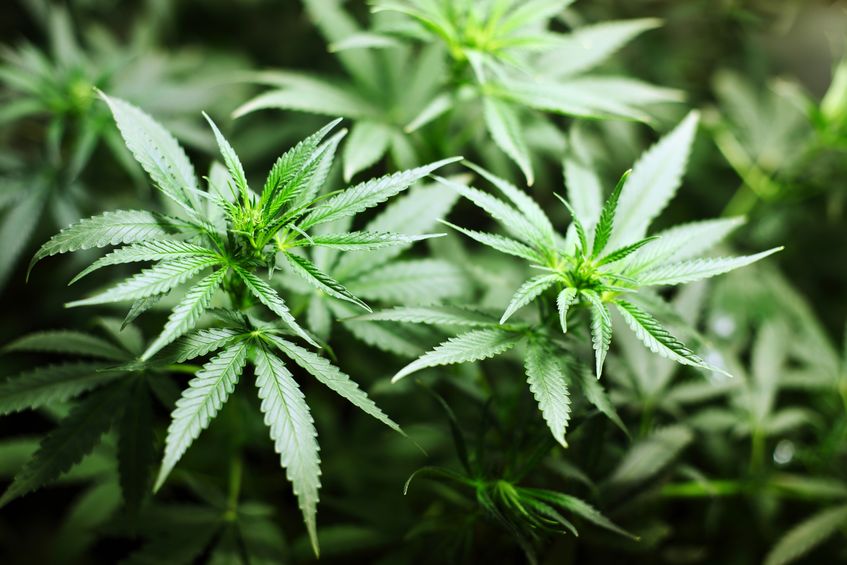
It’s certainly not the sort of protest you typically hear about — a group in Birmingham is calling on local stoners to show up for what they’re hoping will be the largest “smoke-out” ever. Organized by the Decriminalize Bham Action Committee, the smoke-out is calling on marijuana smokers to publicly light up their joints in an effort to start a conversation with Birmingham Mayor Randall Woodfin about decriminalizing cannabis in the Magic City. Scheduled for Tuesday, July 17 the smoke-out will take place at a yet-to-be-named location. “Each year, thousands of innocent men and women are arrested and incarcerated for low level cannabis possession,” posted local activist Carlos Chaverst Jr., one of the event’s organizers on Facebook. “We are asking Birmingham Mayor Randall Woodfin to join other cities across the country by decriminalizing cannabis within the Birmingham city limits.” According to a video Chaverst Jr. posted on Facebook, he’s in talks with the mayor’s office about the issue. He also said he’s personally texted the mayor about the event, but has not heard back. Chaverst Jr. says decriminalizing cannabis will help reduce the number of non-violent offenders in jails. “[Decriminalizing cannabis] will reduce the number of non-violent offenders, keep our jails and prisons from overcrowding and increases stability within the local economy,” he added. Watch Chaverst Jr. talk about the event below:
Two Alabama bills to lower penalties for marijuana possession up for debate

Two Alabama lawmakers are looking to move marijuana legislation in the state forward. Montgomery-Republican state Sen. Dick Brewbaker and Birmingham-Democrat state Rep. Patricia Todd have both filed bills in the state legislature to be debated by House and Senate Judiciary Committees on Wednesday. Under existing law in the state, any person who knowingly sells, distributes, or brings into the state more than 2.2 pounds of cannabis is considered a trafficker and can be sentenced to a minimum of three years imprisonment and a $25,000 fine. Brewbaker’s SB51, filed earlier in the year, would adjust the minimum amount needed to be convicted of trafficking to 10 pounds. Brewbaker hopes his legislation will keep young people from being convicted of major felonies. “No one is talking about legalizing possession of marijuana, but I haven’t talked to anybody who thinks hanging felonies on college kids is a great idea because that follows them around for the rest of their lives” he told AL.com. Todd’s bill, HB272, seeks to change the amount needed in to be convicted of unlawful possession of marijuana, and the punishment’s inflicted upon those who break the law. As the law stands today, anyone who possesses cannabis for personal use can be charged with a Class A misdemeanor, resulting in a jail sentence of up to one year and up to $6,000 in fines. A second time offender could be charged with a Class D felony, and sentenced to up to five years in prison, with at least some of that time being served in a community corrections facility. Todd’s bill would add a lower tier of punishments, and would require possession of two or more ounces of marijuana in order to be convicted. The bill also changes sentencing for possession of one ounce or less to a violation, with fines that would not appear on a person’s criminal record. A first or second offense of unlawful possession of marijuana would be punishable by a fine not over $250 and a third offense would result in a violation with a fine of $500 or less. The bill however, makes no provisions for edible derivatives of a cannabis plant. “This is not as bad as alcohol, we don’t want people to use. But it costs the state a lot of money to enforce the possession law,” Todd told AL.com. Todd believes opposition to her bill has passed, and thinks law enforcement should not have to spend valuable time and resources chasing small amounts of marijuana, while we have an opioid crisis in the state.
High time Congress takes up marijuana

My expectations for Donald Trump‘s administration, in terms of agency actions and executive orders, have by-in-large been exceeded to date. Just when I’m getting comfortable, Attorney General Jeff Sessions issued a memo on Marijuana Enforcement that felt like a curveball, and as some have pointed out a contradiction to Trump’s previous positions. At the end of the day, however, Sessions was right. We are the party of small government and states’ rights, but we can’t pick and choose laws to ignore. We (conservatives) screamed our heads off when Barack Obama decided to just pick and choose which immigration laws he wanted to ignore so it’s only fair we can’t pick and choose the marijuana laws to ignore. The Controlled Substances Act needs to be amended. Like many jarring decisions and flip-flops of decisions made in the last year, the problem isn’t in the action but the execution of the action. Sessions himself, or the Trump administration as a whole, should have given Congress a heads up that they needed to take up this issue. With the immediate application of Sessions’ memo those selling pot in states where it is legal now find themselves facing prosecutorial discretion not a position I wish on anyone. This discretion if used will only lead to prolonged court battles, which in turn will lead to judges taking control of what is a legislative problem. So while yes, some of the social conservative base will push back on federal action they’d be wrong. The Republican platform leaves little room for federal control on state issues even ones of subjective moral opposition. Let’s be blunt: Congress has made it a point in recent years of side-stepping or avoiding tough issues it’s time they take this one on let the will of the people state-by-state prevail.
Cannabis industry reacts to Jeff Sessions’ confirmation hearing

Under U.S. law, marijuana possession and distribution remains illegal, but even after Attorney General-nominee Sen. Jeff Sessions‘ first the day of Senate confirmation hearings some still question how the senator would enforce that law if confirmed. Vermont-Democrat Sen. Patrick Leahy pressed Sessions about the conflict between federal and state marijuana laws, as some 65 million Americans now live in states that authorize adult recreational use. “I believe your own state of Alabama permits the use of a derivative of marijuana known as CBD oil, legal in Alabama, illegal under federal law,” said Leahy. “If you are confirmed as the nation’s chief law enforcement official, and you know that we have very, very limited federal resources — in fact, we spend about a third of our budget now just to keep the prisons open because of mandatory minimums and whatnot — would you use our federal resources to investigate and prosecute sick people who are using marijuana in accordance with their state laws, even though it might violate federal law?” “I won’t commit to never enforcing federal law,” said Sessions. “But, absolutely, it’s a problem of resources for the federal government. In response to Republican Sen. Mike Lee from Utah, Sessions added, “It’s not so much the attorney general’s job to decide what laws to enforce. We should do our job and enforce laws effectively as we’re able.” Sessions’ remarks garnered mixed reviews among marijuana legalization proponents, among them Nate Bradley, Executive Director of the California Cannabis Industry Association (CCIA) “Despite Session’s comments about enforcing federal laws, we expect the Trump Administration will make good on its commitment to states’ rights,” Bradley said. “Just this morning, when asked about medical cannabis, the administration’s Press Secretary reaffirmed that Trump’s entire cabinet, including Sessions, will be “implementing a Trump agenda,” and that Senator Sessions is “well aware of that.” Isaac Dietrich, CEO of MassRoots, worried about Sessions’ stance from another angle — jobs. ”If Senator Sessions goes after the regulated cannabis industry, he will destroy tens of thousands of jobs, shut down hundreds of small businesses and take away millions of dollars from our schools,” Dietrich explained. “Hopefully the Trump Administration supports states’ rights on cannabis legalization, despite Senator Sessions’ personal views.” Erik Altieri, the executive director of the National Organization for the Reform of Marijuana Laws (NORML) believes, Sessions’ comments were troubling. “After finally being put on the spot and questioned on the issue, we are no closer to clarity in regards to Sessions’ plans for how to treat state marijuana laws than we were yesterday,” Altieri said in a statement. “If anything, his comments are a cause for concern and can be interpreted as leaving the door open for enforcing federal law in legalized states. If Sessions wants to be an attorney general for all Americans, he must bring his views in line with the majority of the population and support allowing states to set their own marijuana policies without fear of federal intervention.”
Marijuana advocacy group moves to block Jeff Sessions’ AG Nomination

Despite the fact marijuana remains illegal on the federal level, following Election Day, 65 million Americans now live in states that authorize adult recreational use. Which is precisely why the marijuana industry is uneasy over the notion of Alabama Sen. Jeff Sessions being confirmed as the United States’ next Attorney General — as leader of the Justice Department, the outspoken marijuana-opponent would have the power to force marijuana-friendly states into compliance with federal law. “We need grown-ups in charge in Washington to say marijuana is not the kind of thing that ought to be legalized, it ought not to be minimized, that it’s in fact a very real danger,” Sessions said at a Senate hearing in April. As Sessions confirmation hearings are poised to begin next week, the DCMJ, the group that spearheaded the successful campaign to legalize marijuana in the District of Colombia, on Tuesday kicked off an effort to urge the Senate to stop Sessions from becoming the next AG in order to protect the burgeoning industry. “We have come to assume Senator Sessions will overturn the will of more than 70% of the voters in the District of Columbia that voted for full legalization if made Attorney General,” said DCMJ co-founders Adam Eidinger and Nikolas Schiller in a letter to the Senate. “He will be empowered to ignore the 60% of Americans, who support legal cannabis or the more than 80% of U.S. citizens, who support the legalizing cannabis for medical purposes.” The letter continued, “The facts are that a legal cannabis industry: provides tens of thousands of jobs to hardworking, law-abiding citizens; stops unjust laws that disproportionately impact minorities; furnishes access to life-changing treatments for critically ill patients; empowers responsible small business owners over criminal dealers and cartels; generates valuable economic development, jobs, and provides much needed revenues for strapped state budgets.” The DCMJ and other drug reform advocates can’t be certain of Sessions’ agenda as AG until the confirmation hearing begins Tuesday. Nevertheless they’re prepared to fight if necessary. “We will use all practical means to fight the threat Sessions poses to overturn the will of the voters, ignore science and medical professionals and put black market marijuana back in the hands of international organized crime rings,” Eidinger said.
With friends like these: Richard Shelby ran 1986 ad suggesting Jeff Sessions called KKK ‘good ole boys’
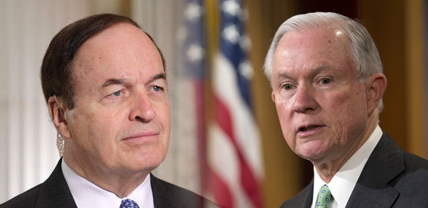
Thirty years ago, a campaign ad suggested Jeff Sessions saw the Ku Klux Klan as a bunch of “good ole boys.” But, as John Sharp of AL.com notes, the attacks against the then-U.S. Attorney seeking a spot on the federal bench, wasn’t from Democrats like Massachusetts Sen. Ted Kennedy who was fighting his nomination. The 1986 ad came from Congressman Richard Shelby – who would later become one of Sessions’ colleagues and a longtime friend in the Senate. William Stewart, professor emeritus of political sciences at the University of Alabama, says the relationship between Shelby and Sessions “definitely changed.” Shelby, who narrowly won that 1986 election for his first term in the U.S. Senate, will likely support Sessions as he faces the Senate Judiciary Committee for a confirmation hearing on his nomination as Donald Trump‘s Attorney General – the same committee that denied Sessions’ appointment as a federal judge 30 years ago. In a statement, Shelby called Sessions “a dear friend” of more than 20 years and “a man of great integrity.” “I was an enthusiastic supporter of Jeff in his bid to join me in the U.S. Senate,” Shelby said. “We have been rock-solid partners in Congress ever since.” Much has changed over the past three decades. Sharp writes: “The linkage of Sessions to the Klan by Shelby occurred days before the Nov. 3, 1986, election. Shelby, then a Democrat, won his first Senate term that year by defeating Republican Sen. Jeremiah Denton by a razor-thin margin of 50.3 percent to 49.7 percent. “Denton, at the time, had backed Sessions’ nomination to the federal judiciary. The Judiciary Committee hearings proved to be a disaster at the time that battered Sessions’ reputation after his nomination was rejected amid allegations that he once called a black staffer “a boy,” that he considered the NAACP as ‘un-American’ and used criminal prosecutions to thwart voting rights for blacks. “In addition, a colleague testified that Sessions once joked that he felt the Ku Klux Klan was okay until he learned they smoked marijuana.” A Tuscaloosa Democrat at the time, Shelby used the comments to blast Denton in a campaign ad, angering Sessions, who told the Mobile Register the claims were “slanderous” and “absolutely false.” “I expect the false ad to be withdrawn at once,” Sessions said in a Nov. 3, 1986, article. He demanded an apology from Shelby. Shelby – a Republican since 1994 – now takes a decidedly different view of his one-time opponent: “Jeff Sessions’ record of standing up for all Americans and his high moral character indisputably prove that the 30-year-old claims of the past are nothing more than baseless political accusations.”
Drug charges dropped against son of Chief Justice Roy Moore
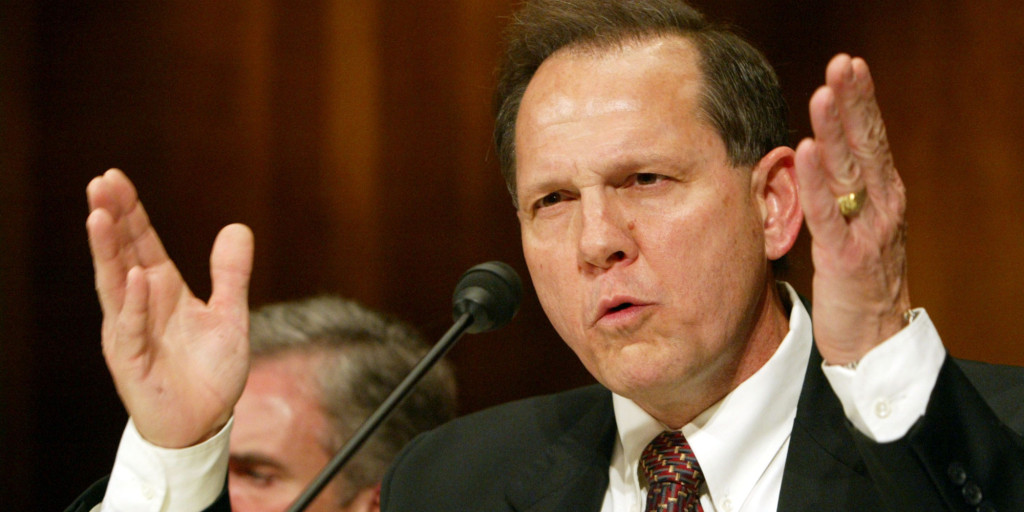
Drug charges against the son of Alabama’s chief justice have been dropped. AL.com reported Wednesday that court records show the charges were dropped several months ago after Caleb Moore agreed to enter a pre-trial diversion program with the Pike County District Attorney’s Office. Moore is the son of Alabama Chief Justice Roy Moore, a conservative Christian who made national headlines last year with his attempts to block gay marriage. Caleb Moore was facing charges of felony possession of the prescription medication alprazolam and misdemeanor marijuana possession. He was arrested in March in Troy. Police responding to a possible break-in said they reported smelling marijuana and finding Xanax. Caleb Moore pleaded guilty in 2013 and 2014 to separate misdemeanor charges of possession of drug paraphernalia. Republished with permission of the Associated Press.
Supreme Court rejects appeal over Cottonwood man’s life sentence in marijuana case
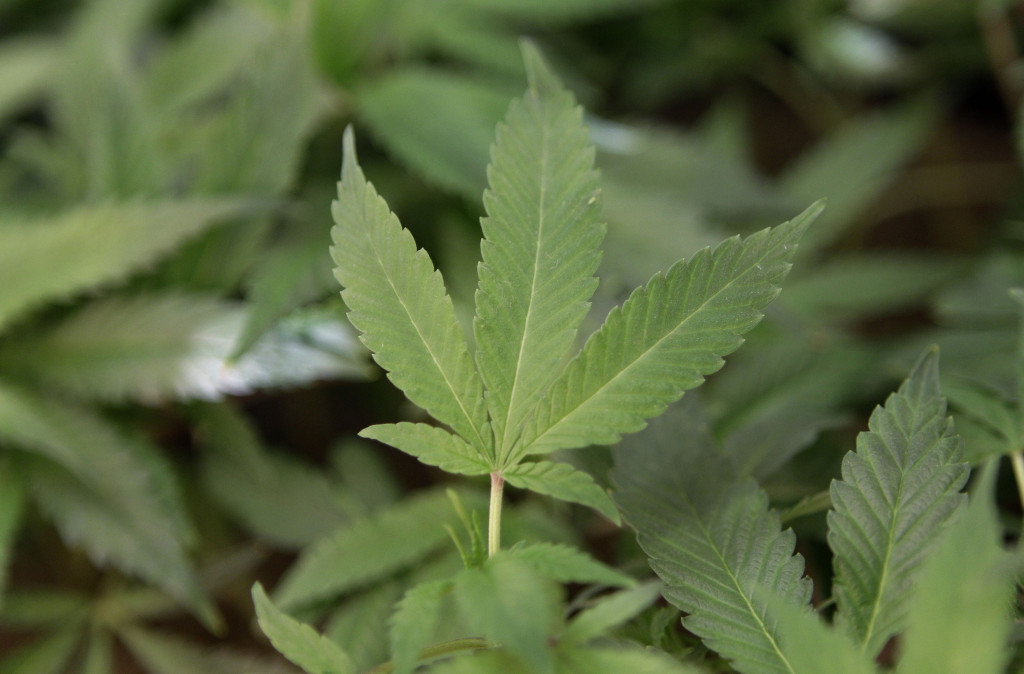
The U.S. Supreme Court on Monday declined to hear an appeal in a case of a 76-year-old Cottonwood, Ala. man who was sentenced to life in prison without parole for possessing less than three pounds of marijuana. In October 2014, Lee Carroll Brooker was sentenced to life in prison in without parole under the Yellowhammer state’s habitual offender law. Brooker, a disabled veteran suffering from chronic pain, claimed the marijuana plants grown behind his son’s house were for medicinal use. There is no medical use exemption for growing marijuana under Alabama state law. Lawyers for Brooker argued the sentence violates the U.S. Constitution’s ban on cruel and unusual punishment. Nevertheless the justices from the high court let the original sentence stand. Thursday, The New York Times editorial board agreed with Brooker’s lawyers and urged the Supreme Court to hear the case. “The justices should take the case and overturn the sentence… Life without parole, second only to the death penalty in severity, should never be a mandatory sentence for any crime, much less for simple possession of marijuana, which is not even a crime in many parts of the country,” the editorial read. “Mr. Brooker’s punishment for marijuana possession is the definition of cruel and unusual.” Last September, the Alabama Supreme Court also declined to hear the case. But that didn’t stop Alabama Chief Justice Roy Moore from writing a separate concurrence to the court’s decision questioning the “grave flaws” in Alabama’s sentencing system. “I write separately because I believe Brooker’s sentence is excessive and unjustified,” Moore wrote in his concurrence. “Under circumstances like those of Brooker’s arrest and conviction, a trial court should have the discretion to impose a less severe sentence than life imprisonment without the possibility of parole.” Moore continued: “In my view, Brooker’s sentence of life imprisonment without the possibility of parole for a non-violent, drug-related crime reveals grave flaws in our statutory sentencing scheme. I urge the legislature to revisit that statutory sentencing scheme to determine whether it serves an appropriate purpose.” According to the Alabama Department of Corrections website, Brooker is serving his sentence at Holman Prison in Atmore.


